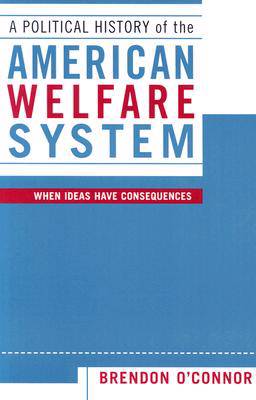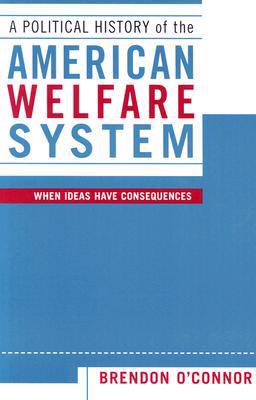
- Afhalen na 1 uur in een winkel met voorraad
- Gratis thuislevering in België vanaf € 30
- Ruim aanbod met 7 miljoen producten
- Afhalen na 1 uur in een winkel met voorraad
- Gratis thuislevering in België vanaf € 30
- Ruim aanbod met 7 miljoen producten
Zoeken
A Political History of the American Welfare System
When Ideas Have Consequences
Brendon O'Connor
Paperback | Engels
€ 114,95
+ 229 punten
Uitvoering
Omschrijving
How did American welfare policy move from the ambitious and altruistic goals of LBJ's Great Society of the 1960s to the punitive and penurious provisions of the Personal Responsibility and Work Reconciliation Act of 1996? This book explores the power of ideology and rhetoric in the transformation of the American liberal welfare state. Based on historical analysis, detailed public policy critique, and original interview data, the story that unfolds is one of both personality and politics. Author Brendon O'Connor places the American welfare policy debate in wider perspective, showing how America's particular use of ideas and conceptions of economics and politics worked to reshape the national perception of poverty, morality, and economic responsibility over time. Through wide reading, close textual analysis, and dozens of talks with liberal and conservative figures including Peter Edelman, David Ellwood, Ron Haskins, and Representatives E. Clay Shaw, Jr., Jim McCrery, and Sandy Levin, O'Connor dramatically demonstrates the shift in American welfare policy from left to right. This acute outside perspective enables us to see clearly just how we have arrived at the current post-liberal welfare era in the United States.
Specificaties
Betrokkenen
- Auteur(s):
- Uitgeverij:
Inhoud
- Aantal bladzijden:
- 304
- Taal:
- Engels
Eigenschappen
- Productcode (EAN):
- 9780742526686
- Verschijningsdatum:
- 1/10/2003
- Uitvoering:
- Paperback
- Formaat:
- Trade paperback (VS)
- Afmetingen:
- 148 mm x 227 mm
- Gewicht:
- 385 g

Alleen bij Standaard Boekhandel
+ 229 punten op je klantenkaart van Standaard Boekhandel
Beoordelingen
We publiceren alleen reviews die voldoen aan de voorwaarden voor reviews. Bekijk onze voorwaarden voor reviews.











